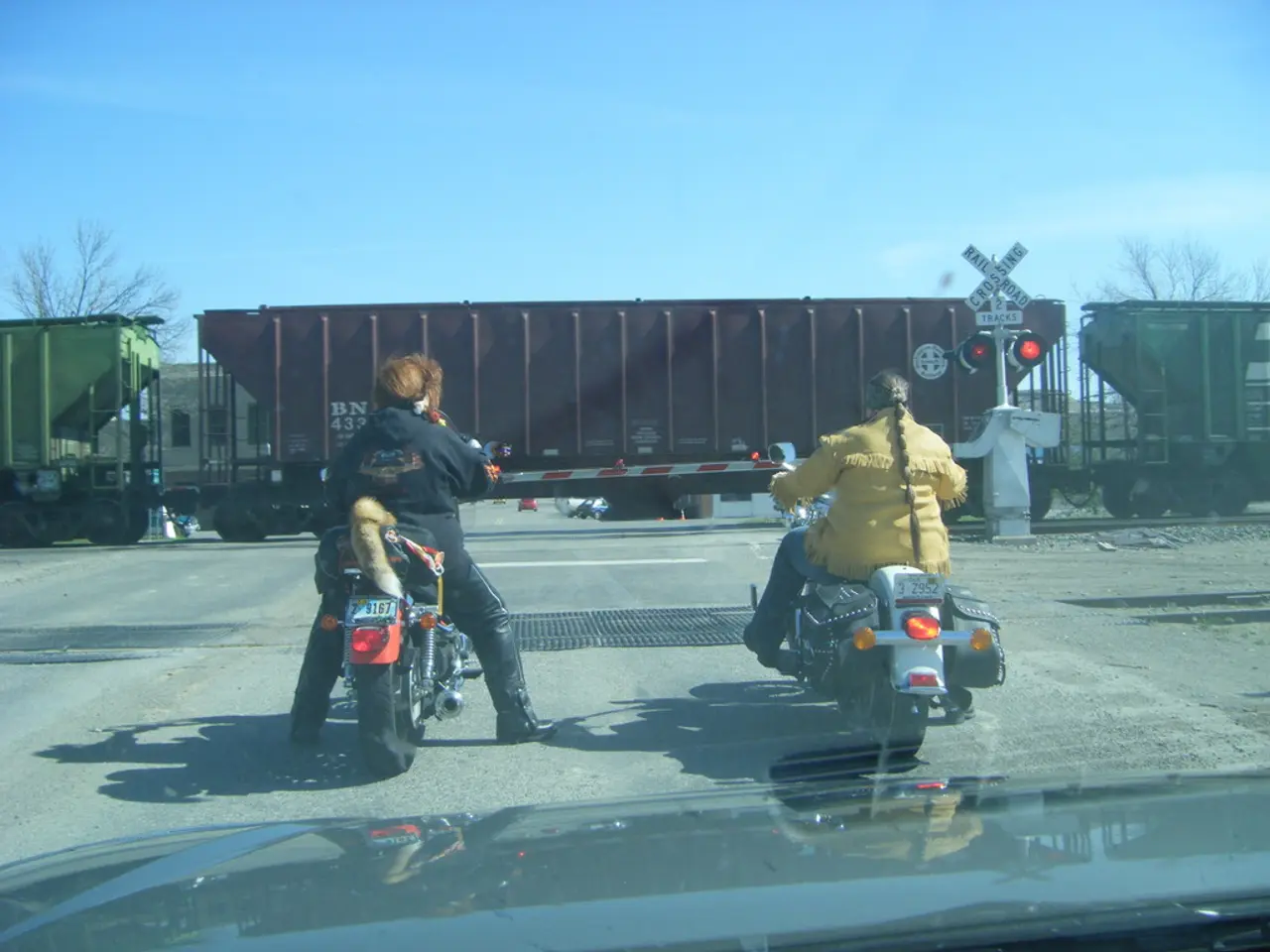Increased Passenger Counts for Buses and Trains in Fürth
Fürth, a vibrant city in Germany, is experiencing a surge in the use of public transportation, reaching an all-time high. According to Mayor Thomas Jung, this significant achievement is a testament to the city's commitment to sustainable mobility [1].
Currently, 18% of all trips in Fürth are made by bus or train, demonstrating the city's reliance on its integrated public transportation system [2]. This system, known as the "environmental network," is utilised by 61% of the city's population [3].
Fürth's public transport system is primarily connected to the Greater Nuremberg area’s network, which includes buses, trains, and bike lanes. The city is served by the Nuremberg U-Bahn system, specifically the U1 line, which connects Fürth with Nuremberg rapidly [1].
The U3 line, which serves the region including northern and southern extensions within Nuremberg, is being expanded further. Stations like Gebersdorf and Kleinreuth are planned to open in 2027, enhancing the U-Bahn network's reach [1]. Although U3 primarily serves Nuremberg, its extension and integration contribute indirectly to Fürth's connectivity.
Fürth's public transport also includes numerous buses integrated into the Verkehrsverbund Großraum Nürnberg (VGN), the Greater Nuremberg transportation association. This collaboration allows seamless travel on more than 1,000 bus and rail lines within the region using a common ticketing system, promoting environmentally friendly mobility and convenience [2][3].
Looking ahead, Fürth's plans for increased bike lanes and connections could further boost the use of sustainable transportation options. The city is also committed to continuing the mobility transition, aiming to promote cleaner urban transport [4].
The latest customer satisfaction survey indicates that buses and trains are more popular in Fürth than ever before, reflecting the city's focus on public transportation and bike infrastructure [5]. The survey shows that the city's residents are increasingly choosing these environmentally friendly options for their daily commuting needs.
In conclusion, Fürth's current public transportation relies heavily on the integrated VGN network, with U-Bahn access through U1 and regional trains, comprehensive bus networks, and evolving bike-friendly infrastructure. Future enhancements focus on extending rapid transit in the broader region, with U-Bahn line extensions in Nuremberg that may indirectly benefit Fürth commuters, and continued improvements in sustainable transport modalities within the metropolitan area [1][2]. The city's plans for increased bike lanes and connections further underscore its commitment to promoting sustainable mobility.
References: [1] Nürnberger Nachrichten. (2022, March 10). U3-Strecke nach Fürth: Bisher keine konkrete Planung. Retrieved from https://www.nuernberger-nachrichten.de/nachrichten/stadt/u3-strecke-nach-fuerth-bisher-keine-konkrete-planung,101948433.html
[2] Verkehrsverbund Großraum Nürnberg. (n.d.). Verkehrsverbund Großraum Nürnberg. Retrieved from https://www.vgn.de/
[3] Stadt Fürth. (n.d.). Umweltnetz Fürth. Retrieved from https://www.fuerth.de/verkehr/umweltnetz/
[4] Stadt Fürth. (n.d.). Mobilitätswende. Retrieved from https://www.fuerth.de/verkehr/mobilitaetswende/
[5] Stadt Fürth. (n.d.). Kundenbefriedigungsumfrage. Retrieved from https://www.fuerth.de/verkehr/kundenbefriedigungsumfrage/
- The rise in public transportation usage in Fürth is a testament to the city's involvement in sustainable mobility and lifestyle, particularly in the transport industry.
- The environmental network, which is the integrated public transportation system in Fürth, is linked to the Greater Nuremberg area's network, consisting of buses, trains, and bike lanes, thereby facilitating finance for the city's home-and-garden sector by promoting sustainable living.
- Every 6 out of 10 residents in Fürth utilize this environmental network, highlighting the city's dependence on public-transit for their transportation needs.
- With the expansion of U3 line and increasing bike lanes, Fürth aims to further boost sustainable transportation options and improve overall connectivity in the region.




